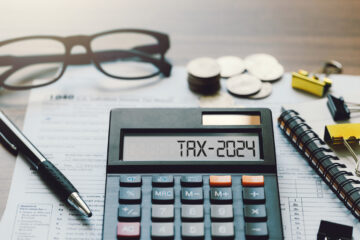By: Marvi Ali
The Federal Reserve System, or the Fed, is the central bank and monetary authority of the
United States. Founded in the aftermaths of the Panic of 1907 and a series of financial crises, the
Fed was tasked with the major responsibilities of conducting national monetary policy,
supervising and regulating the banking system, and ensuring financial stability. There are three
main components of the Fed: the Regional Banks, the Board of Governors, and the Federal Open
Market Committee. One of the seven governors from the Board of Governors is appointed as the
Chairman of the Fed by the President of the United States and then confirmed by the US Senate.
The Fed Chair serves as a spokesperson and representative for the rest of the Board and chairs
both the Board of Governors and the Federal Open Market Committee. The position is held for a
four-year term and, for the last several weeks there have been discussions and debates
surrounding President Biden’s nomination for the next Chair.
The two frontrunners whom Biden was said to be considering included incumbent Fed
Chair Jerome Powell (Republican), and Lael Brainard (Democrat), a member of the Fed Board of
Governors. Although both Powell and Brainard agree on monetary policies to sustain the Fed’s
dual mandate, stable prices and maximum employment, the two hold differing opinions on the
intensity with which the Fed should regulate the financial system and should address the effects
of climate change. Since Powell’s 2017 nomination as Fed Chair by President Trump, he has
pursued a deregulatory agenda. Under his tenure, regulatory stress tests, tests that evaluate a
bank’s capital and if it can adequately meet obligations and operate during strenuous economic
times, have become less stringent, and living wills, or a plan that describes a company’s strategy
in the event of financial distress or failure of the economy, have become less frequently required
and more simplified. For these policies, Powell has faced much criticism from progressives and
Democrats. On the other hand, since 2018, Brainard has voted against more than 20 changes to
bank regulation made by the Fed. Additionally, Powell has voiced his belief that the Fed plays a
limited part in climate change, suggesting that the Fed’s role is simply to manage banks’ climate
risks rather than set a “national strategy on climate change,” whereas Brainard has pushed for
climate change-specific regulation from the Fed.
On November 22, Biden nominated Powell as Fed Chair and Brainard as Vice-Chair,
demonstrating the President’s prioritization of economic stability and continuity over partisan politics. Now, Powell and Brainard will jointly face inflationary pressures, climate change regulations, and manage the economic trends of a post-pandemic society.



